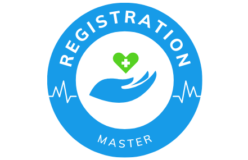 Are you looking to take your focus, concentration, and overall performance to the next level? Self-hypnosis may be just what you need. With self-hypnosis, anyone can learn how to access their subconscious mind in order to tap into its power and potential. In this blog post, we will go over everything you need to know about how self-hypnosis works so that you too can use it as a tool for enhancing your focus and performance. So read on if you’re ready to gain an edge!
Are you looking to take your focus, concentration, and overall performance to the next level? Self-hypnosis may be just what you need. With self-hypnosis, anyone can learn how to access their subconscious mind in order to tap into its power and potential. In this blog post, we will go over everything you need to know about how self-hypnosis works so that you too can use it as a tool for enhancing your focus and performance. So read on if you’re ready to gain an edge!
The basics of self-hypnosis and its benefits
Self-hypnosis, although often misunderstood, is an incredibly powerful tool for achieving a wide variety of personal goals. Whether you’re looking to kick a bad habit, achieve a deeper sense of relaxation, or simply improve your overall well-being, self-hypnosis can help. Essentially, the process involves inducing a state of deep relaxation and heightened suggestibility in order to access your subconscious mind and effect positive change. This can be done individually, or with the help of a trained hypnotherapist. The benefits of self-hypnosis are numerous, and can include reduced stress, increased focus and concentration, better sleep, and even improved physical health. So why not give it a try? With a little practice and dedication, the power of self-hypnosis can be yours to enjoy.
Find a comfortable, quiet place to practice
The key to successful practicing is finding a comfortable, quiet place where you can focus on your goals without undue disturbance. Whether you’re an athlete, musician, artist, or student, you need to hone your skills and perfect your craft in an environment that supports your progress. This could be a studio, a private room, or even a quiet corner of your local library. Whatever your chosen space, it should be free from distractions like loud noise, bright lights, or other people that could disrupt your flow. So take some time to scout out the perfect spot where you can zone out and get lost in your practice sessions. With the right spot and the right mindset, you’ll be well on your way to achieving your goals.
Relax your body and focus on your breathing
In today’s fast-paced world, it can be difficult to find a moment to relax and unwind. However, taking a few minutes to focus on your breathing can do wonders for both your mind and body. As you take deep breaths, you can consciously release your physical tension and clear your mind of any stress or distractions. Whether you’re at work, at home, or on the go, taking a few moments to relax your body and focus on your breathing can help you feel more refreshed and centered. By incorporating this simple practice into your daily routine, you may even find that you are better equipped to face the challenges of your busy life with a sense of calm and clarity. So take a deep breath, let go of your worries, and start feeling the benefits of relaxation today.
Use visualization techniques to enter into a trance-like state
Visualization techniques are a powerful way to enter into a trance-like state of mind. By creating vivid mental images, we can transport ourselves to a place of deep relaxation and focus. Whether it’s picturing yourself on a beach at sunset or envisioning a peaceful mountain lake, visualization can help us tap into our subconscious mind and uncover new insights. By harnessing the power of our imagination, we can let go of everyday stresses and distractions and enter into a state of heightened awareness. So the next time you need to clear your mind and find your center, try using visualization techniques to transport yourself to a place of tranquility and peace.
Set an affirmation and repeat it to yourself during the session
Your mindset is a powerful tool when it comes to achieving your goals, and using affirmations is a great way to harness that power. The act of setting a positive affirmation and repeating it to yourself during your session can have a profound impact on your focus, motivation, and overall success. Whether you’re working towards fitness goals, studying for an exam, or pursuing your dreams in your career, incorporating affirmations into your routine can help you stay aligned with your intentions and keep you on track towards achieving your desired outcomes. So, take some time to reflect on your goals and set a powerful affirmation that resonates with you – then, repeat it to yourself during your next session and watch as it helps you stay focused, motivated, and driven towards success.
Exit the trance by taking deep breaths and gradually becoming aware of your environment again
As we go about our busy lives, it’s not uncommon to feel like we’re operating on autopilot, moving from one task to another without truly being present. But what about those times when we need to snap out of it and come back to reality? That’s where deep breathing and environmental awareness come in. By taking a few deep breaths and tuning into our senses, we can gradually exit the trance-like state we may have found ourselves in. Suddenly our surroundings become clearer, sharper, and more real, and our minds become more present and alert. It’s a powerful tool for grounding ourselves in the moment and refocusing our attention on what really matters. So next time you feel yourself slipping into a trance, take a deep breath and come back to reality – the world is waiting for you.
All in all, it is clear that self-hypnosis is an effective and efficient way of changing our thought-processes, allowing us to form new habits and mindsets. These methods can help individuals manage difficult emotions and reduce anxiety and stress. However, if you are under serious mental health issues please consult a professional for advice and guidance. Practicing self-hypnosis can be beneficial but only when done properly, with the right mindset and concentration, ensuring the user a safe experience. There are plenty of guides online as well as numerous books dedicated to learning more about this subject matter. Self-hypnosis should be seen as an opportunity to explore your inner world and also gain insight of yourself so why not give it a try? Learn more about self-hypnosis from here www.hypnosishouston.com


 Depression is a serious condition that can affect people of all ages and impact their overall mental health. Unfortunately, it is also associated with a variety of physical health concerns as well. While it’s important to be aware of the psychological symptoms, such as feeling sad or hopeless for prolonged periods, it’s also essential to understand how your depression could lead to other conditions. In this blog post, we’ll explore what diseases are linked to depression so that those living with the disorder can better recognize any additional health risks they might face.
Depression is a serious condition that can affect people of all ages and impact their overall mental health. Unfortunately, it is also associated with a variety of physical health concerns as well. While it’s important to be aware of the psychological symptoms, such as feeling sad or hopeless for prolonged periods, it’s also essential to understand how your depression could lead to other conditions. In this blog post, we’ll explore what diseases are linked to depression so that those living with the disorder can better recognize any additional health risks they might face.
 Do you ever feel overwhelmed with the amount of work (or play) on your plate? Does it seem like there are just not enough hours in a day to accomplish it all? It’s time to take control and improve your focus and concentration! Whether you are wishing for better results at school, want to power through tasks at work, or just looking for more efficient study habits, this post is here to help. Keep reading as we dive into easy strategies that anyone can use to boost their productivity levels. With the right techniques in your toolkit, even the most scatterbrained among us have the potential to stay ahead of deadlines and achieve our goals!
Do you ever feel overwhelmed with the amount of work (or play) on your plate? Does it seem like there are just not enough hours in a day to accomplish it all? It’s time to take control and improve your focus and concentration! Whether you are wishing for better results at school, want to power through tasks at work, or just looking for more efficient study habits, this post is here to help. Keep reading as we dive into easy strategies that anyone can use to boost their productivity levels. With the right techniques in your toolkit, even the most scatterbrained among us have the potential to stay ahead of deadlines and achieve our goals!